19 April 2020
The COVID-19 pandemic has made visible the stark realities of social, economic and political inequality in Asia. Class and social privilege, race/ethnicity, gender, occupation and age determine who are most vulnerable to the virus and disease. They also determine who suffer the worst impacts of the pandemic which include infection itself, as well as the economic, social, and political impacts of the measures that many governments are taking to contain the disease. While heredity is important, pre-existing health conditions of co-morbidity—diabetes, heart disease, high blood pressure, respiratory and pulmonary conditions, and low immunity to infections—exist equally because of, and are exacerbated by pre-existing and entrenched inequalities. The latter determine access to adequate ,affordable health care, healthy diets, and facilities to prevent disease such as clean, regular water supply, sanitation, housing that allows physical distancing and quarantine and personal protective equipment (PPE).
The most common response by many Asian governments to contain the spread of COVID-19 has been to impose lockdowns that have severely restricted transportation and travel; closed industry and services (except those considered essential); halted agricultural production, procurement and storage; and closed retailing through local markets and informal vending that urban poor, rural communities, agricultural workers and local producers depend on for their livelihoods. In India, although lockdown instructions permitted agricultural activities and retailing of essential goods, they were interpreted differently across states, causing fear, confusion and hardships for the poor.
While preventing/limiting contact among people (especially those who have traveled from places where the disease was prevalent) and measures to prevent community transmission of the virus are essential, lockdowns in Pakistan, India, Thailand, Vietnam, Cambodia, Myanmar and Philippines have left millions of informal sector, agricultural and migrant workers, street vendors, and entertainment and hospitality workers stranded without wages, shelter, food and health care, and have prevented farmers, fishers and herders from crucial food production activities.The lockdowns have been particularly brutal in India and Philippines, where they were announced with almost no lead time for preparation and have been enforced through police-military presence. National and international press coverage have reported that millions of workers in India walked for days to reach their home villages carrying their children and meagre belongings, and were brutalized along the way by shocking acts of police violence and detention in unsafe, unhealthy spaces. Many remain trapped in urban areas, unable to leave, but without food, water, sanitation and shelter.
Cambodia also issued a sudden lockdown as garment workers were preparing to return to their home villages for the Buddhist New Year, leaving thousands walking on highways in the dead of night. The lockdown in Cambodia has now been lifted but the government has decreed that workers returning to factories must undergo two weeks of compulsory quarantine. Civil rights advocates report that majority of the workers will not be paid any wages during the quarantine period. Also, rural communities in provinces adjoining the Vietnamese and Thai borders are facing food shortages because they depend on cross-border trade for livelihoods. In Thailand, grocery shops, supermarkets and mass transit in the capital city remain open, although travel across provinces is restricted. In Vietnam, lockdowns are continuing and strictly enforced, but the government is ensuring the availability of food and essential medicines available in every neighborhood under lockdown.
An insidious twist to the “whole of Government” approach
COVID-19 has exposed not only the weaknesses of public health systems across much of Asia (another “pre-existing condition”), but also of many other aspects of the public realm that are integral to building robust public health and welfare systems. These include public provision of essential goods and services, adequate food and shelter, safe working and living environments, social justice and protection, and fundamental rights and liberties–civil, political, economic, social and cultural. Given the seriousness of the disease and the social-economic hardships caused by governmental responses, peoples’ access to accurate, updated information about the disease, about measures necessary to contain and prevent its spread, and about sources of medical, social and economic support, assume heightened importance.
However, such information has not been forthcoming, possibly because many governments do not know the most effective course of action, nor do they have a plan other than extending lockdowns in some form. With the exception of South Korea, Singapore, Vietnam and China, Asian governments are not conducting sufficient testing to detect, isolate and treat infections, and to map clusters according to risk and vulnerability.
At the same time, many governments have taken advantage of the pandemic to consolidate political power, cement authoritarian rule and erode human rights. Emergency powers invoked by governments and passed by parliaments–or that have bypassed parliaments altogether—allow ruling regimes to control all aspects of governance, administration and security with no democratic oversight. While the fine print may vary across countries, these emergency powers share many dangerous commonalities: full control over financial allocations; power to authorize the use of deadly force through police and military; unlimited surveillance of telecommunications; control of conventional and social media (ostensibly to prevent fear and public unrest); restrictions on freedom of speech,movement and assembly; unfettered powers to put in place any measures considered necessary in a state of emergency; suspension of constitutional rights, freedoms and due process; and the authority to determine the period of emergency.
Here again we see pre-existing conditions: the shrinking of democratic spaces and oversight, violations of human rights and fundamental freedoms, muzzling of press and media, governmental controls over public discourse, manipulation of legal-judicial systems to silence dissent, political persecution of members of particular communities/religions–all of these were already on the rise before COVID-19 hit.
The pandemic has presented our ruling regimes with the perfect justification to consolidate their power and deepen rights abuses in the guise of protecting the public. Much of the public, for the most part, is so frightened by the disease and/or taken by surprise that we are willing to accept the “firm hand” needed to combat the crisis and bring the unruly, undisciplined masses to heel.
Crackdowns on freedom of speech are reframed as sabotaging efforts to protect public health. In China, Thailand, Myanmar, Philippines, India, Cambodia, Singapore and Indonesia, doctors, nurses, health workers, researchers, journalists, lawyers, bloggers and social media users have been penalised for sharing information about local/national conditions and/or questioning government measures /actions on the grounds that they spreading fake news and creating panic and unrest.
In India, the ruling regime is using the state of emergency and lockdown to persecute those that it has long considered threats to its ideology and legitimacy, despite the fact that those arrested be exposed to the disease because of their age, pre-existing health conditions, and cramped unsanitary living conditions in detention. Public health and human rights advocates have pointed out the over-crowded jails and detention centres in Asia are dangerous petridishes for the coronavirus. Nine prisoners and nine prison officials in the Quezon City Jail in the Philippines have already tested positive for COVID 19.
In times of crises, human rights, civil liberties and public participation are often the first systemic casualties. Joseph Cannataci, the UN special rapporteur on the right to privacy recently warned in an interview that “Dictatorships and authoritarian societies often start in the face of a threat,” and cautioned on the importance of being vigilant today and not giving away all our freedoms.
On March 16, several UN Special Rapporteurs on human rights issued a statement asking governments to avoid “overreach” of security measures and make sure that human rights are at the core of their efforts to tackle COVID 19.The UN experts made it clear that declarations of emergency, whether for health or security reasons, have clear guidance from international law, that must be used in their application:
“Moreover, emergency declarations based on the COVID-19 outbreak should not be used as a basis to target particular groups, minorities, or individuals. It should not function as a cover for repressive action under the guise of protecting health nor should it be used to silence the work of human rights defenders…Restrictions taken to respond to the virus must be motivated by legitimate public health goals and should not be used simply to quash dissent.”
Alarm over the opportunistic use of COVID 19 to erode fundamental rights and freedoms, and persecute particular communities and individuals has prompted cautionary statements and warning by numerous UN human rights experts as well as the Office of the High Commissioner of Human Rights.
Taking back the ‘public’
One of the biggest dangers of emergency measures that are supposed to protect people during exceptional circumstances such as COVID 19 is that they can persist indefinitely. COVID-19 has provided an opportunity for political leaders/regimes in many countries to enact policies that favour their interests, which can become institutionalized and be used in other circumstances that ruling regimes deem exceptional. Digital surveillance—which had already started expanding over the past several years—is increasingly being used to tackle COVID 19 with the acquiescence of the public and spearheaded by digital technology companies.
In the last 20 years the world has experienced epidemics and pandemics from many dangerous pathogens: SARS, MERS, Avian flu(s), Swine flu, Nipah, Ebola, Zika and now COVID 19, which is the worst so far, similar to the 1918-1920 flu pandemic These viruses remain in our eco-systems and there is enough reason to believe that there will be future outbreaks with mutated, stronger genotypes. Experiences in tackling past epidemics/ pandemic will be important in addressing those in the future. However, surveillance in technology is developing very quickly, and we do not know how data collected today will be used tomorrow, especially during emergency situations where democratic safeguards are not put in place and civil liberties are increasingly suspended
We are in a period when social systems are overwhelmed trying to deal with a terrifying pandemic, mainstream media is rife with conspiracy theories and misleading narratives, and discrimination and political persecution are gaining an upper hand. This is a time when we, as the public, can and must develop and socialise our proposals for rebuilding strong public health systems, infrastructure for public goods and services, and social protection and security, with special provisions for those who are most vulnerable and least protected: the precariat, migrant workers, small scale food producers, indigenous peoples, and among all these, women, who are usually the primary care providers. This is a time when we can start to transform our societies and countries towards equality by building solidarity and economic systems from the ground up.
It is also important to work out the nuts and bolts of international solidarity in the context of COVID 19. While Cuba and China are sending doctors and medical supplies to many countries, the US continues to maintain sanctions on Iran and Venezuela, and international institutions refuse to lift economic embargoes against them. This is shocking and unacceptable. We simply have to pressure all our governments to set these self-interested politics aside and concentrate on ensuring the safety of people everywhere. Trade negotiations that allow corporations to corner the market are especially criminal at this time and will further deepen economic inequalities.
It is absolutely clear that the post COVID 19 “normal” will have to be very different: the institutional and governance structures of the world and national economies must fundamentally change. Corporations and financial markets must not be bailed out; but public goods, services, infrastructure, health and welfare need to be invested in, including research and development. The monopoly powers of corporations must be dismantled—especially in pharmaceuticals, healthcare, food, water and all those aspects with public interest implications. This will include changing the way food is produced, distributed and consumed, stopping industrial agriculture and the assault on environments and eco-systems from our wasteful lifestyles.
Finally, it is paramount that we distinguish our progressive strategies to combat financial and corporate globalization from those of right wing regimes that foster racism, prejudice and xenophobia while deepening ties with transnational capital.
*Shalmali Guttal is Executive Director at Focus on the Global South

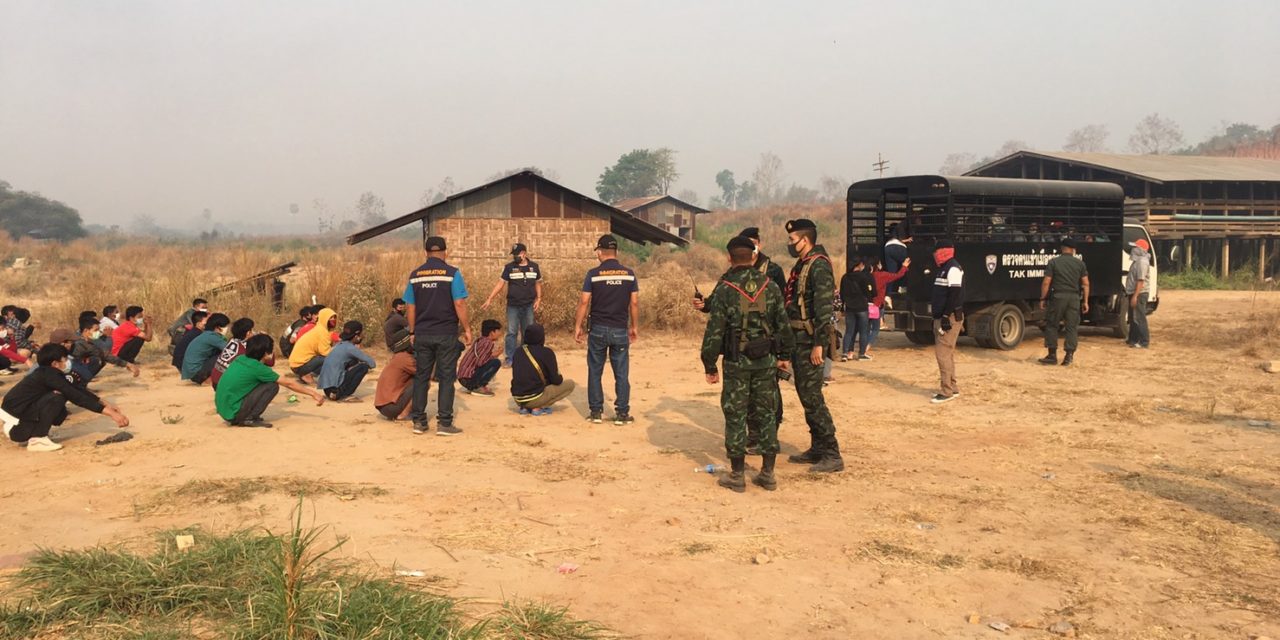
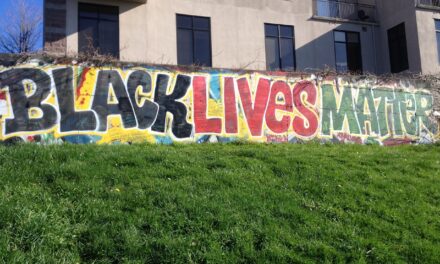
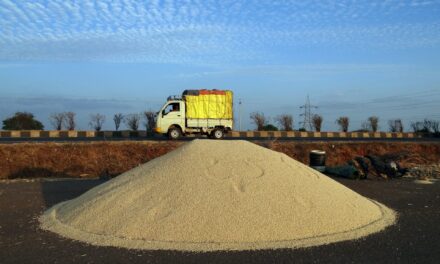
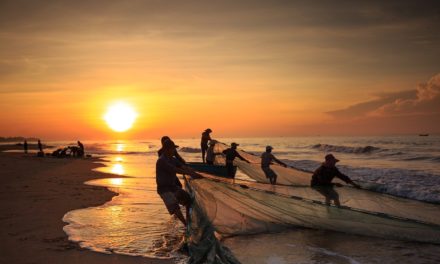
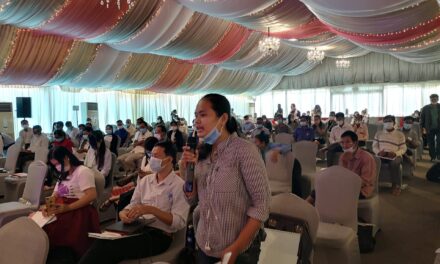
![[IN PHOTOS] In Defense of Human Rights and Dignity Movement (iDEFEND) Mobilization on the fourth State of the Nation Address (SONA) of Ferdinand Marcos, Jr.](https://focusweb.org/wp-content/uploads/2025/07/1-150x150.jpg)



